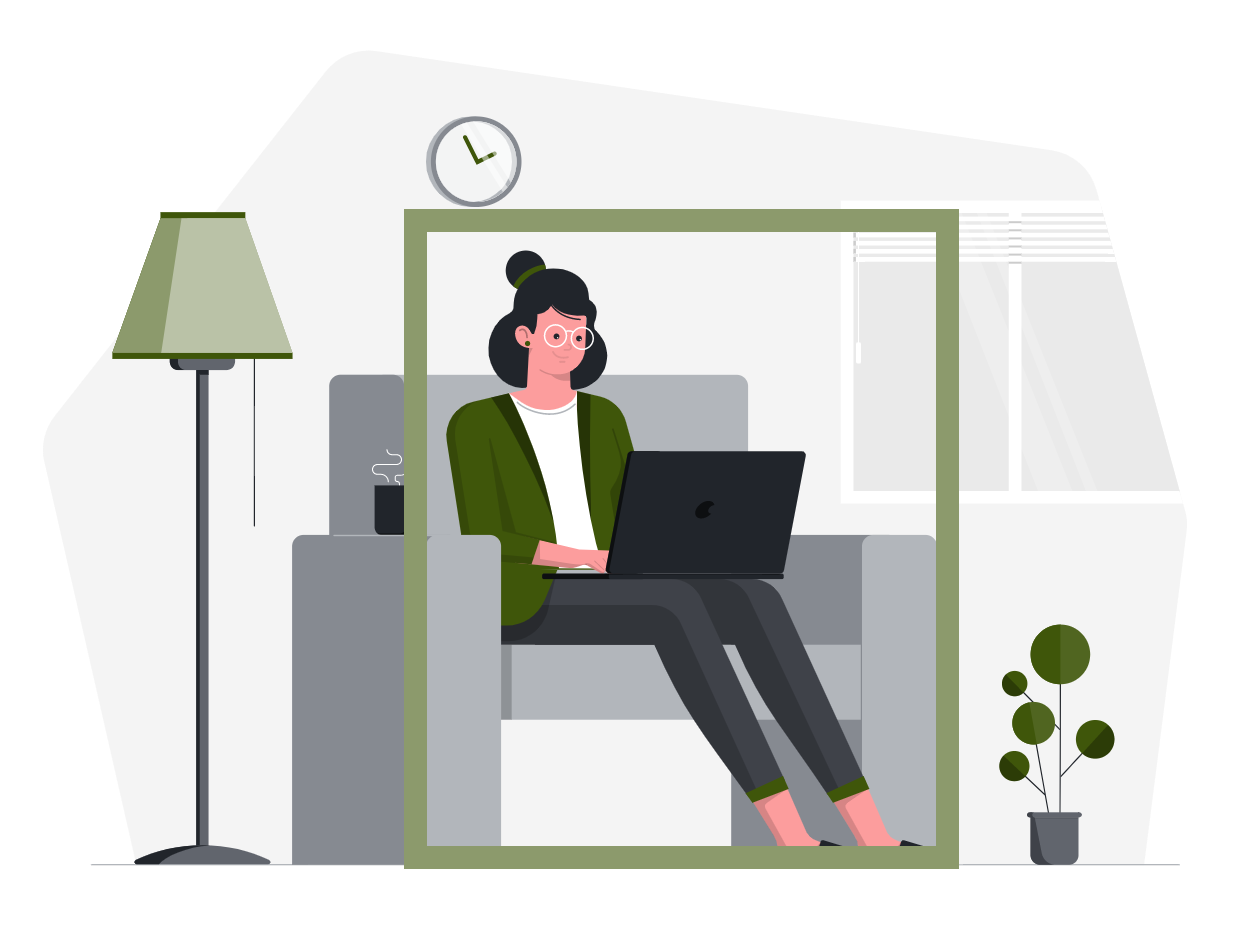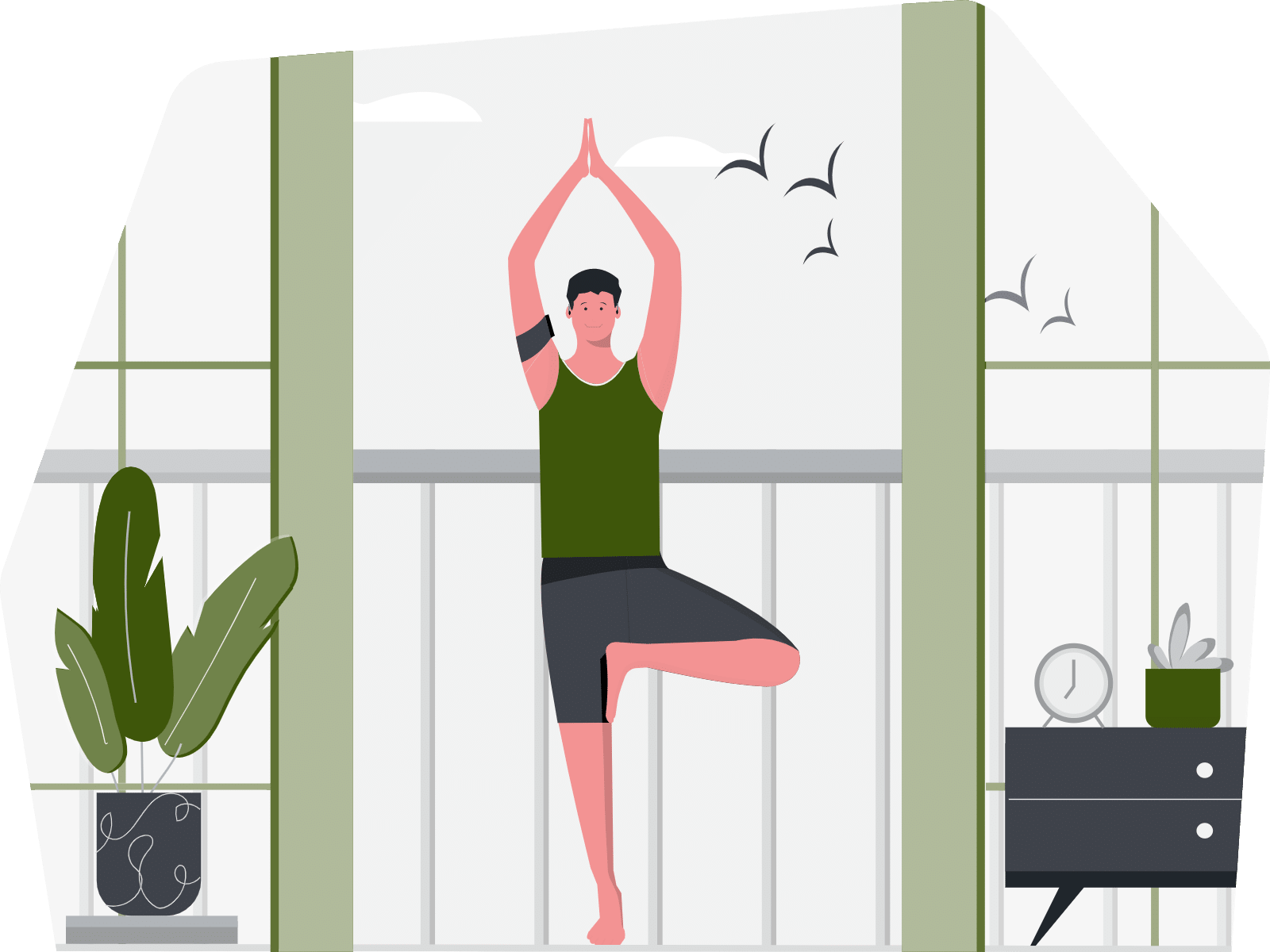Mental health has always been an important element to foster in the workplace, but since the COVID-19 pandemic, people have struggled more as their work-life separation was upended by work-from-home mandates. The pressure of deadlines and at-home responsibilities have negatively impacted the health and well-being of many people. And while many individuals are now returning back to the workplace, many still participate in a hybrid format that can make maintaining mental health more difficult.
August is National Wellness Month and while the below tips are important to follow all year round, Plan B believes spreading awareness of them during this month is a great way to create a happy and healthy culture in the workplace. Check out Plan B’s 10 tips below!
- Fill Your Workspace with Intention

As your workspace is where you spend most of your day, it’s imperative that you create a space that is both calming and comfortable for you so you can maximize your productivity. An organized space can make a sense of calm under stress, as a clean space is one less thing to worry about each day.
For some, this may mean starting each day with a clean desk, ready-to-use Post-it notes, or a whiteboard to keep you organized. For others, this could mean sitting by natural lighting or filling your desk with plants to breathe life into your space.
- Routine is Key

Beginning each morning with a routine can ease the stress of last-minute and unnecessary stress. Waking up earlier is a great way to nurture your mind, body, and spirit, by giving yourself time to enjoy a calming beginning to each day. Whether you start your day exercising, journaling, or taking a few minutes to meditate, adding an enjoyable element to your morning routine can jumpstart your day. The app Insight Timer offers 45,000 free meditations and can be a great place to start. Other mindfulness apps include: Smiling Mind, Headspace, Calm, Stop, Breathe & Think
Your morning routine can be just as important as your nightly one. For example, typical adults need 7 to 9 hours of quality sleep per night, and failing to achieve this on a regular basis can impact energy, mood, and motivation. Studies suggest there even is a strong correlation between insomnia and clinical depression. For this reason, ensuring you get enough rest each night is critical to taking care of your mental health.
- Take Active Breaks

While it may seem counterintuitive, taking regular active breaks at work can increase your focus and boost your productivity. Every hour or so, get up from your desk and move around for around 5 minutes. From bathroom breaks, stopping to check in with colleagues, getting a glass of water, or doing a light stretch, participating in some form of movement each hour can keep you more on task than trying to power through.
- Set Boundaries

In a world where the technology that keeps you connected makes it hard to shut down, it’s important to set boundaries for yourself to ensure a healthy work-life balance. Especially in today’s hybrid or remote work environment, where your bedroom may also act as your office, setting a routine log-off time each day is important to ensure you take care of your mental health. This may also include turning your work notifications or work phone off outside of those hours.
- Take Some Me Time

Work-related stress can take a serious toll on your mental health, so it’s critical you make time to do things you love with the people you care about. This will look a little different for everybody. Whether it’s hiking a mountain, riding your bike around the block, or reading a book, we all have activities that refill our personal buckets. Take time on a regular basis to do something you enjoy.
- Practice Controlled Breathing

When days get stressful, practicing a few simple techniques can be an effective way to relax.
The first technique to practice is called controlled breathing. Controlled breathing can boost endorphins, and reduce stress, anxiety, and anger. These techniques can increase your energy levels, improve your mental health, and increase your productivity because a happy mind is a healthy mind.
Another technique to try is known as the box technique: blowing out through your nose or mouth, empty all the air from your lungs, then breathe in for four seconds, hold your breath in for four seconds, exhale through your mouth for four seconds, and then finally blow the breath out for the last four seconds.
- Make Daily Connections

The sudden transition to a remote workplace has left many without the daily social benefits of going in to work each day. These social benefits are very important to daily mental health, and for this reason, it’s crucial to put in a little extra effort through technology like Zoom meetings and Slack conversations to check in with coworkers.
- In With The New

From trying a new activity, traveling to a new place, or buying yourself a gift, treating yourself to something new can rejuvenate you. For example, when you travel, you can learn about new cultures, reconnect with nature, or spend time with loved ones, which can all be a great way to get your mind off life’s stressors. One of the best parts of remote work is the ability to work from anywhere. Try taking advantage of this every now and then and work from somewhere new like a coffee shop or a beach.
And whether it’s buying yourself dessert at lunch, or doodling in some downtime, treating yourself to a new experience can be a great way to improve your mental health. And while venturing into the unknown may be just the thing to bring out an adrenaline rush and a little happiness-inducing excitement, trying something new allows individuals to discover things they may not have otherwise known about themselves.
- Lend a Helping Hand

People who consistently help other people experience greater calm, fewer pains, better health, and less depression, according to Mental Health America. One study even found that students who completed 5 acts of kindness per day significantly improved their levels of happiness. From acting as a mentor to holding the door open for a coworker, every act of kindness can lead make you feel good and result in better mental health.
- Unleash Your Creativity

Expressing creativity can greatly benefit the mind. According to a Forbes article, creativity reduces anxiety, depression, and stress.” Other studies have found that writing helps people manage their negative emotions in a productive way while drawing and painting help individuals process trauma they’re unable to put into words. And while painting may not be an option in the office, drawing and journaling can be. From hosting office-wide creative projects to taking on something creative during your lunch hour, adding creativity you are passionate about to your day can greatly improve your mental health.
Happy and Healthy is Good for Business
While we as employees may take the proper steps to protect our mental health, part of the responsibility also lies with employers. From benefits packages with adequate access to healthcare coverage to lifestyle benefits like employee discounts that support mental fitness, the support offered by employers can greatly impact an employee’s health and wellness.
And even though employers should want their employees to be healthy and happy, it is also important for business. For example, disengaged employees cost businesses upwards of
$500 billion each year. And more than 8 in 10 employees say their employers provide at least one mental health offering, according to a report commissioned by the American Heart Association. But those same employees also said they wished their employers did more.
Baby Steps
While it’s clear mental health struggles can’t be cured overnight, every employee deserves understanding and dignity no matter their access to professional services. But for many of these employees, attempting to fix everything at once will without a doubt lead to more frustration.
Each person has their own unique personality traits, strengths, weaknesses, and life circumstances that will affect what they need at a given time. For this reason, Plan B believes it’s critical for employers to seek to empower their workers to be their happiest and healthiest selves, and for the employees themselves to aim to do the same. And while protecting your mental health in the workplace is important for being a good employee, it can make you happier and more balanced in all aspects of your life.